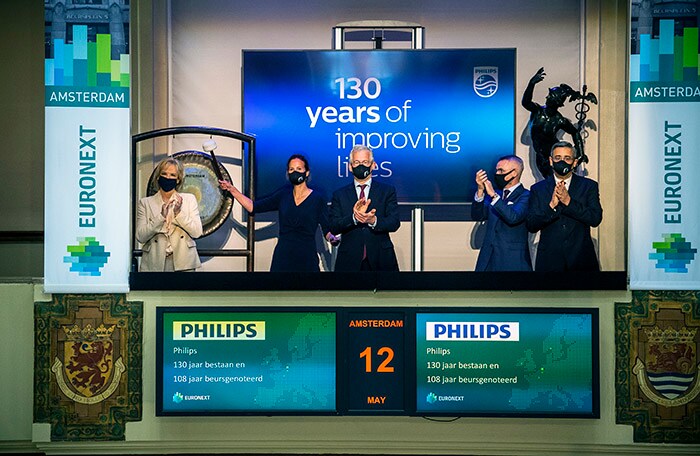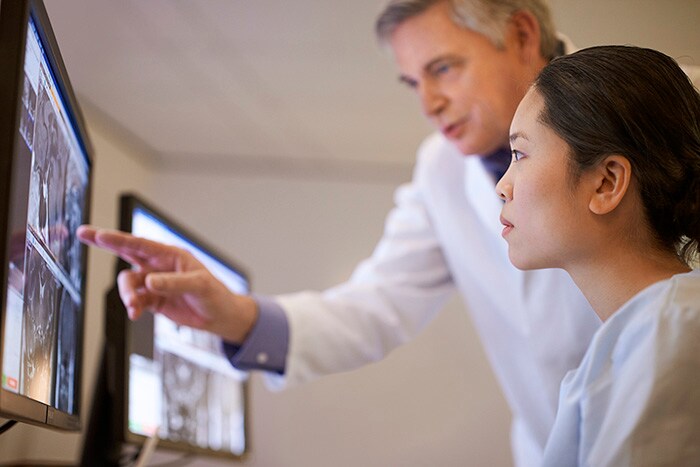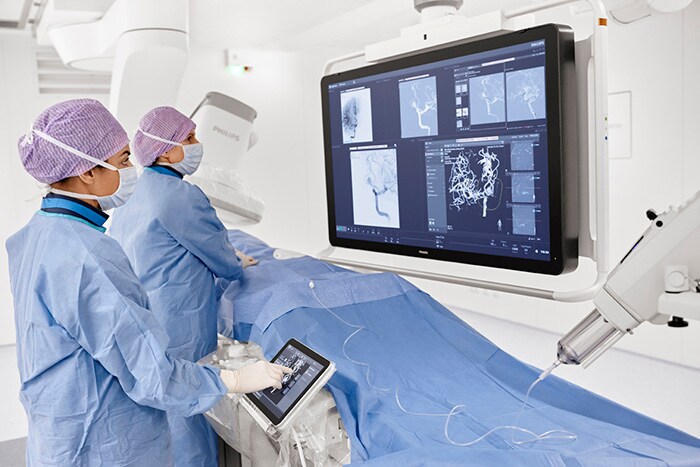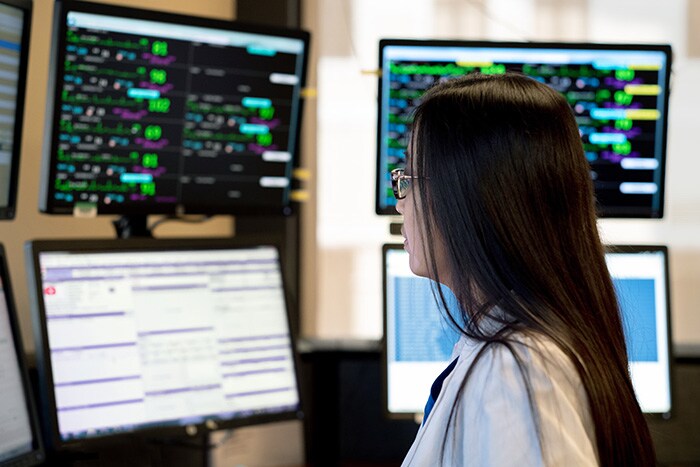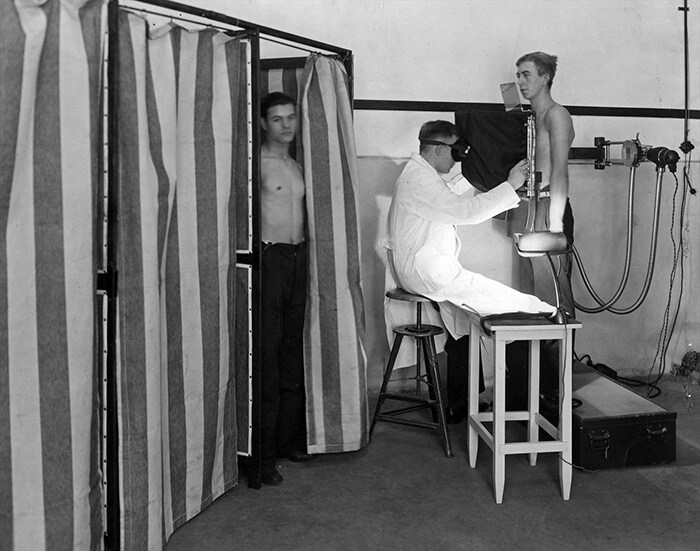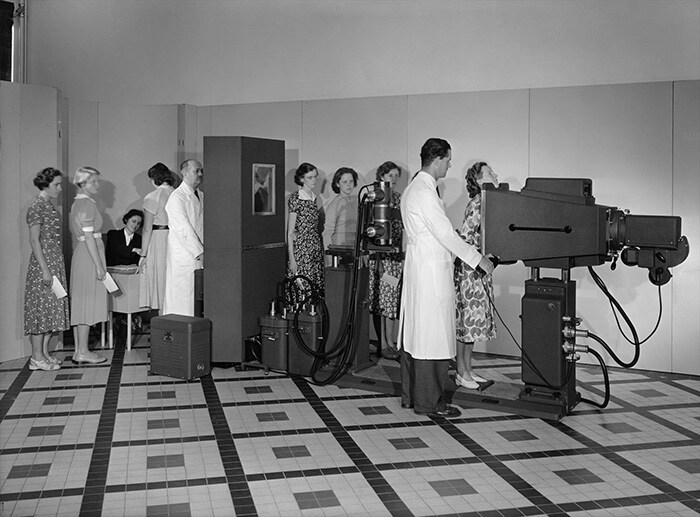May 12, 2021
130 years of Philips innovation, collaboration, and social responsibility
Amsterdam, the Netherlands – Royal Philips (NYSE: PHG, AEX: PHIA), a global leader in health technology, today celebrated 130 years of innovation, collaboration, and social responsibility. During its rich history since being founded on May 15, 1891, in Eindhoven in the Netherlands, the company has continuously reinvented itself to remain relevant to society. Today, Philips is a leading health technology company with a purpose to improve the lives of 2.5 billion people a year by 2030 through meaningful innovation.
The company’s 130th anniversary is a celebration of the continuous innovation journey that has enabled Philips to positively impact the lives of so many people around the globe.
Frans van Houten
CEO of Royal Philips
“The company’s 130th anniversary is a celebration of the continuous innovation journey that has enabled Philips to positively impact the lives of so many people around the globe,” said Frans van Houten, CEO of Royal Philips. “It’s also about looking forward – continuing to innovate, collaborate and live up to the highest standards of doing business responsibly and sustainably. We will continue to team up with innovators, experts and society to help create new ground-breaking solutions to today’s healthcare challenges.”
New sculpture of Gerard Philips
As a tribute to 130 years of innovation and collaboration, Philips will offer an artwork of Gerard Philips, who together with his father Frederik Philips, founded the company. The sculpture will be unveiled in Eindhoven city center at a newly developed public location. Gerard later also founded Philips’ research laboratories in Eindhoven, the strong foundation of Philips’ global innovation strength today, which currently includes four innovation hubs and multiple innovation and manufacturing sites. Philips spends EUR 1.8 billion annually on R&D to fuel the company’s growth and intellectual property, which comprises approx. 59,000 patent rights and 31,000 trademarks.
Innovation and entrepreneurship
Philips’ entry into health technology took place during the First World War when it applied the skills it had developed for manufacturing lightbulbs to repairing, and subsequently manufacturing, X-ray tubes for diagnostic imaging, rapidly innovating their design to minimize X-ray exposure and improve image quality. Since then, Philips has innovated virtually every major medical imaging modality from ultrasound to MRI and CT systems. Recent examples include:
Philips’ current innovations span the health continuum from healthy living and disease prevention to diagnosis, treatment, and care in the home. By bringing together devices, systems, software, artificial intelligence (AI) and advanced analytics, the company today develops intelligent solutions that help consumers around the world to live healthy lifestyles and enable healthcare providers to deliver on the quadruple aim: enhancing the patient experience, improving health outcomes, lowering the cost of care, and improving the work life of care providers.
Collaboration and partnerships
In an ever more complex and interconnected world, meaningful innovation in healthcare also requires co-creation through partnerships and collaborations with leading clinical researchers and care providers. Key examples of leading institutes that Philips collaborates with include:
Philips also enters into long-term strategic partnerships with hospitals and hospital groups that are characterized by new business models and the move from one-time transactions to continuous relationships aimed at offering hospitals a holistic solution that addresses their clinical, operational, and business needs. For example, with:
Social responsibility
Philips’ recognition of its social responsibility goes as far back as 1932, when it started screening its staff, and eventually the whole population of Eindhoven (the Dutch city where the company was founded) for tuberculosis. In the 1990s Philips helped to pioneer the Dutch national breast cancer screening program.
Today, the company’s Environmental, Social and Corporate Governance (ESG) commitments are enshrined in its new 5-year ESG targets and strategic plans. Philips is already carbon neutral in its operations and is set to further reduce its CO2 emissions in line with 1.5°C global warming and source 75% of its total energy consumption from renewables. The company also aims to increase revenue from circular economy solutions to 25% of sales by 2025.
As part of its target to improve the lives of 2.5 billion people a year by 2030, Philips is committed to improving access to care for 400 million people in underserved communities. In collaboration with key strategic partners and the Philips Foundation, it is enabling care in resource constrained settings, for example, by putting portable ultrasound solutions into the hands of trained midwives at primary care facilities in Kenya, and establishing hospital-based cardiology centers in regional cities across India.
For details of the above innovations, collaborations, partnerships and ESG targets, click here.
For more information on Philips history, click here or visit the Philips Museum website.
About Royal Philips
Royal Philips (NYSE: PHG, AEX: PHIA) is a leading health technology company focused on improving people's health and well-being, and enabling better outcomes across the health continuum – from healthy living and prevention, to diagnosis, treatment and home care. Philips leverages advanced technology and deep clinical and consumer insights to deliver integrated solutions. Headquartered in the Netherlands, the company is a leader in diagnostic imaging, image-guided therapy, patient monitoring and health informatics, as well as in consumer health and home care. Philips generated 2020 sales of EUR 17.3 billion and employs approximately 77,000 employees with sales and services in more than 100 countries. News about Philips can be found at www.philips.com/newscenter.
Topics
Contacts
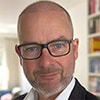
Joost Maltha
Philips Global Press Office Tel: +31 6 10 55 8116
You are about to visit a Philips global content page
ContinueMedia assets
To celebrate 130 years of Philips Frans van Houten, CEO of Philips, opened the Euronext Amsterdam Stock Exchange this morning.
Left to right: Simone Huis in ‘t Veld, CEO Euronext, Mirjam Rubbens, Philips Image Guided Therapy, Frans van Houten, CEO of Philips, René van Vlerken, Head of Listing Euronext, Abhijit Bhattacharya, CFO of Philips.
Philips Sonicare Power Toothbrush 9900 Series Prestige with SenseIQ adapts to an individual user’s unique behavior and needs.
Philips’ AI Workflow Suite – IntelliSpace –
Philips’ AI Workflow Suite – IntelliSpace – a solution for AI-assisted radiology workflows, automatically distributing data to AI applications
Philips Image Guided Therapy System – Azurion –
Philips Image Guided Therapy System – Azurion – accelerating the move from open surgery to minimally-invasive surgery, enabling patients to recover faster and hospital systems to reduce costs.
Philips eICU program
Philips pioneered remote patient monitoring telehealth with its eICU, a scalable, centralized solution that extends critical care resources to the bedside via technology, independent of the health facility’s location.
Early Philips diagnostic X-ray solution used in 1933 in the Netherlands
Philips’ entry into health technology took place during the First World War when it applied the skills it had developed for manufacturing lightbulbs to repairing, and subsequently manufacturing, X-ray tubes for diagnostic imaging, rapidly innovating their design to minimize X-ray exposure and improve image quality.
Screening Philips staff for or tuberculosis in 1951 in the Netherlands
Philips’ recognition of its social responsibility goes as far back as 1932, when it started screening its staff, and eventually the whole population of Eindhoven (the Dutch city where the company was founded) for tuberculosis.

